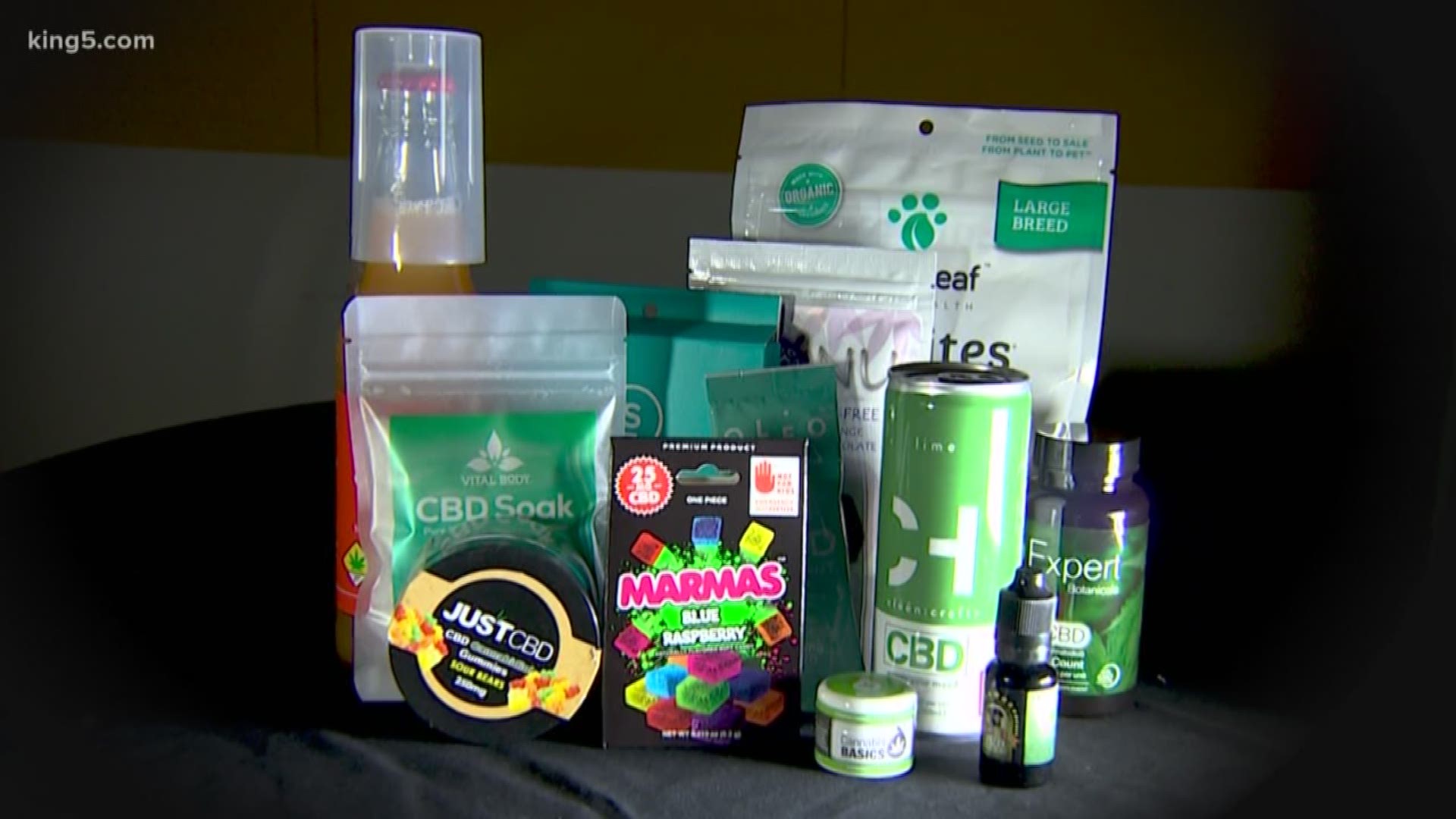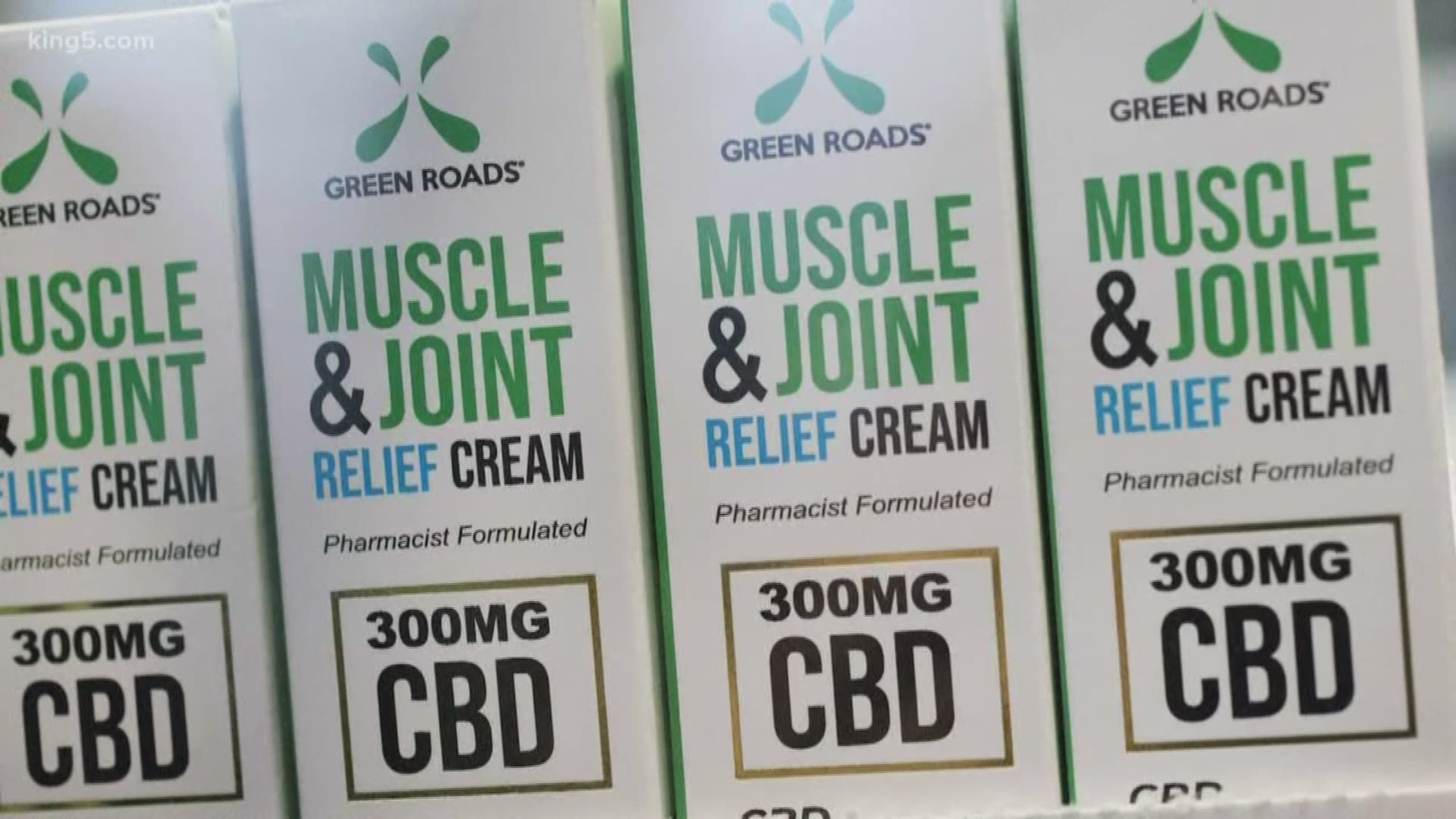SEATTLE — The popularity of products that include CBD is exploding right now.
From grocery stores to gas stations and specialty shops, the ingredient is found in thousands of products that many feel works well to calm everything from anxiety to inflammation.
But the products have no FDA approval, adding to the confusion and instability of this emerging industry.
So do these products really contain what they claim on the packaging?
In order to find out, KING 5 purchased 12 unique CBD products from various stores and put them to the test.
We purchased bath salts, drink mixes, gummies, a trans-dermal patch from Walgreens and a variety of other forms of CBD.
The products were all tested by Confidence Analytics in Redmond. It's a state-certified lab that's also certified by the International Standards Organization and the International Laboratory Accreditation Cooperation.
"What we're seeing right now, is that CBD industry looks a lot like the Wild West," said Nick Mosely, CEO of Confidence Analytics.
And based on the results from our tests, he's right.
Seven of the 12 products we tested contained the exact levels or slight variation of the levels of CBD advertised on the packaging. But the remaining five were well off.
For example, a bottle of tincture from Original 420 Brand promised 15 mg of CBD on the bottle. But lab results indicate it only included 5 mg.
No one with Original 420 Brand got back to our request for comment.
A package of Select CBD trans-dermal patches, purchased at Walgreens, suggested each patch contained 20 mg per patch. But Confidence Analytics found the closest patch to that was only 8 mg.
A spokesperson with Select CBD disputed the findings. They said patches are incredibly hard to test and require very specialized lab methods that they don't believe were used in our test.
Confidence Analytics stood by its results.
"The CBD market is very unregulated right now," said Mosely. "There is a lot of room for improvement with these products."
A third product, CBD coconut drink mix made by OLEO, was off by 40%, according to lab tests.
After we provided the results to OLEO Co-Founder Skyler Bissell, he requested an interview and provided a set of results from a separate lab that disputed our findings.
"You need to be using a test method that's appropriately tuned to the product you're testing," said Bissell. "When we looked into this it turns out the test method you used does not match what we know to be the way you capture the cannabinoid compound in a product like OLEO."
OLEO is now working directly with Confidence Analytics to retest the drink mix using what Bissell calls a more accurate lab method.
The confusion highlights the need for more standardization and regulation on the CBD industry.
Jim Mullen, president of the Washington Cannabusiness Association agrees. He's currently lobbying state lawmakers in Olympia on a variety of legislation to further clarify the CBD industry.
Among the legislation are HB 2359, which would create a certificate of compliance for marijuana business locations that meet distance requirements, and HB 2300, which would allow marijuana businesses to sell CBD products.
"I absolutely am a believer in CBD," said Mullen. "I know that further research is going to prove the benefits of CBD in a lot of different areas. Probably in areas we haven't even thought of yet."


